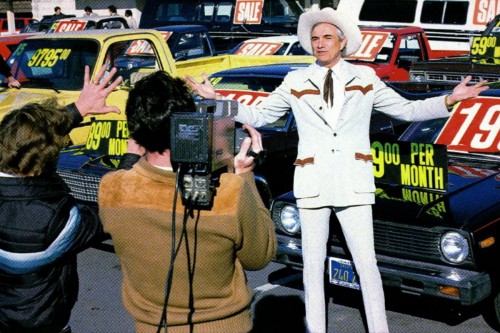Business Acumen: Here’s What Not To Do
I believe that bad examples are just as valuable learning experiences as good examples, if not more so. In order to keep growing personally and professionally, it’s useful to take the lessons the universe presents to you and learn from them.
I’m not in the car business, and I’m not writing for an audience that’s in the car business (at least, I don’t think I am), but the car dealership business model is a beacon for business people everywhere to learn from.
Why? Because the car sales model as it’s evolved into is an absolute testament to car dealerships’ commitment to making the purchasing process as aggravating as possible, from start to finish.
Let’s start from the top:
People make all the difference. It’s all about having the right people in the right places. Yet why are so many car salespeople so bad at their jobs?
Both my wife and I have bought a lot of vehicles. And despite not being quick to anger, the common thread amongst the salespeople we’ve purchased from is that they were the one salesperson during the shopping-around period that we didn’t want to punch.
Sadly, the number of salespeople who did a dazzling job of listening to us and helping us meet our needs is an astounding three in fifteen years.
All the rest got the sale merely because they were the one salesperson we least wanted to punch.
That’s hardly a ringing endorsement, and not one that will earn a referral. “Yeah, go ask for that one guy there, he’s not totally useless.”
I should mention that of those three great salespeople I’ve encountered, they all left their jobs before they could get repeat business from us. Not that I blame them for going and getting a better job somewhere else, but the attrition of car salespeople speaks volumes about the business culture.
I also find it tedious that buying a car requires talking to at least three separate people at the dealership: the salesperson, the sales manager, and the finance manager.
I recognize that the finance manager has a complex job role and specialized knowledge, but if the sales manager is the one who has the Yes/No decision making ability, then why do I even need to talk to the salesperson in the first place?
As an added bonus, part and parcel of the car buying experience is the “follow up” calls and emails from the dealerships we didn’t elect to buy from.
While I take a semi-sadistic glee in pointing out their shortcomings when I tell them honestly why they didn’t get the sale, I also know I’m wasting my breath. They’ll give me a terse “thank you for your honesty” hang up and go back to annoying other people.
The extra-annoying frosting on the annoying cake however is the inexplicable delays in delivery. We’ve never bought a new vehicle that was ready to drive off the lot. They’ve always had to be trucked in from somewhere, plus extra time to detail, clean, and install whatever options need to be installed.
All our vehicles have average two weeks late and three broken promises for delivery dates. I’m assuming our experiences are typical.
Here’s the executive summary of the takeaways on how to better run your own business and serve your customers:
Have people in place who are not just good at their jobs, but great; people who can forge relationships with customers and earn repeat and referral business.
If you’ve already lost the deal, don’t ask why you lost the deal unless you’re actually going to listen to negative feedback and improve your team based on it.
Limit the total number of faces your customer has to talk to in order to do business.
Manage your customers’ expectations realistically, keep promises you make, and don’t paint yourself into a corner, forcing yourself to have to apologize again and again for another broken promise.
Car dealerships somehow manage to break all these rules and still run successful multi-million dollar businesses, there’s no reason why you as a businessperson can’t do better than they do just by acting better than they do.



